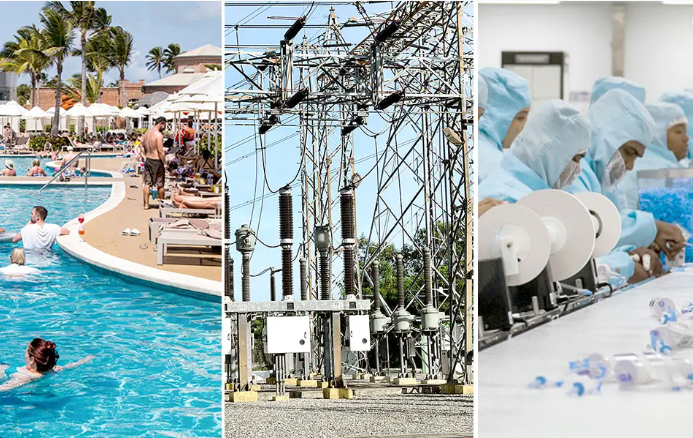Completing the basic management of the Protected Areas System (Sinap), streamlining the development of work instructions in protected areas, and setting up ecotourism models are some of the issues considered urgent and which the Ministry of the Environment is currently focusing on to guarantee the care of national parks.
These and other points were discussed by the Ministry directors and Vice President Raquel Peña during her period as interim head, and presented to Minister Miguel Ceara Hatton, the Deputy Minister of Protected Areas, Federico Franco.
On the subject of completing Sinap’s basic management the deputy minister indicated that he refers to the recruitment of the necessary national park administrators, as well as those eligible for pension of those that must be changed.
“The minimum number of park rangers that were designed for each area must be completed and goes hand in hand with the assessment,” said the official, alluding to the work carried out by the Sinap’s Department of Protection and Surveillance, which is currently distributed among five regional supervisors.
“Each regional supervisor is in charge of looking after the park ranger’s needs so that staff don’t necessarily have to come to headquarters. These regional supervisors can go and give support in a vehicle, or assess the needs directly, all of which should take two or three months.”
Another priority issue is linked to fuel logistics and vehicles. On the matter, Franco indicated that there were some situations that led to delays: “A large tender for fuel was made and the Orlando company came up (at the time of his death) so the process had to be changed.” In the case of vehicles, the delays resulted from the lack of dealers, in addition to an ordinance forbidding the purchase of new vehicles during the pandemic.
Review of work instructions in parks and ecotourism
According to Franco, the authorities are focusing on speeding up the review and updating and drafting management plans or work instructions for the protected area. He said that there are currently 13 of these manuals under review and another 22 under tender.
The deputy minister also emphasized the digitization of collections aimed at mitigating the mismanagement of funds in protected areas and promote transparency.
In Franco’s opinion, setting up ecotourism models is another urgent point for environmental authorities because, when people visit protected areas, they create a double protection insofar as the entry of visitors prevents those who try to damage those spaces from having access.
Considering the importance of setting up these models, the Ministry of the Environment is focusing on two: “a public model we are currently working on in Valle Nuevo, a public glamping ground that has already been chosen and approved,” said Deputy Minister Franco. The term “glamping” comes from mixing the words “glamorous” and “camping” and means to enjoy the outdoors with the comforts of a hotel.
The second model is a private project already underway with public hearings being held. “It is an internationally recognized private company that will come to the country to teach how to handle the type of (ecological) tourism that we have handled without an organized demand,” he said.
Source:
Diario Libre

